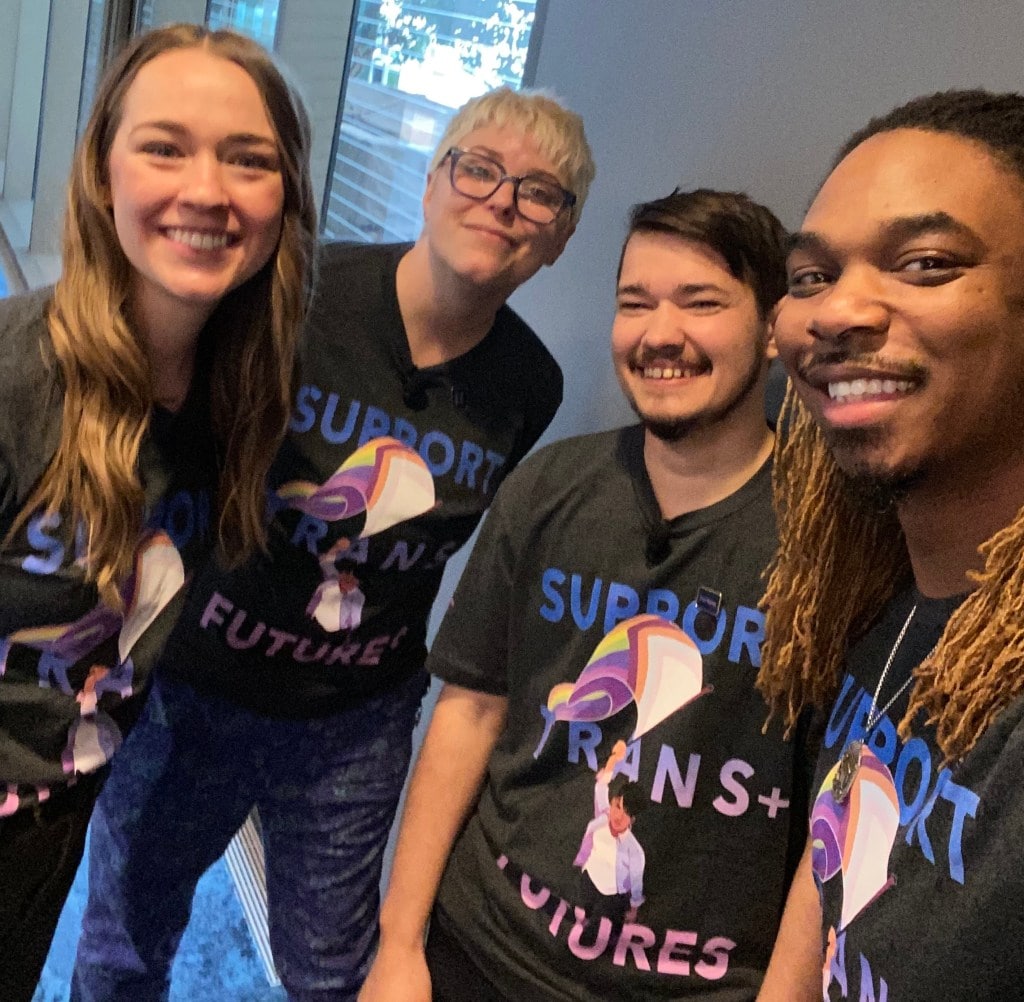We’ve navigated some of the most challenging moments of our time in the past few years. The world of work has forever changed and as we continue to evolve as a society, employee mental health has emerged as a key issue for companies seeking the best way to build and support successful teams. By creating policies and practices that support mental health and wellness, companies are developing workplace environments that encourage belonging, communication and camaraderie — all of which can have positive impacts on the bottom line.
As valuable as these support systems are for all employees, they are especially important to trans and nonbinary colleagues. Recent global issues have brought trans and nonbinary communities into focus, and it is crucial to acknowledge that the needs of every individual are unique. Trans and nonbinary team colleagues often experience additional mental stressors and challenges in the workplace. Companies can play a vital role in addressing these issues, thus creating a truly inclusive environment. Here are several ways organizations can support transgender and nonbinary talent in the workplace.
Recognize the importance of trans and nonbinary mental health
When I first came out at work, I was the first trans person some of my colleagues had met. This is a common experience for trans and nonbinary people, which often puts them under a spotlight that can be mentally exhausting and uncomfortable. What’s more, as trans and nonbinary people advocate for their individual needs in the workplace, we often expand those efforts into larger stretch projects, such as employee resource group initiatives. As fulfilling as this work can be, it can also lead to burnout. I learned that self-care is so important; remember, you cannot pour from an empty cup.
I’ve prioritized self-care and with well-being top of mind, I’ve had the opportunity to serve the needs of our trans and nonbinary talent as a member of Intuit’s Trans Advisory Board. We’ve refined the ways we work together and improved the culture so that everyone is treated with compassion, empathy and given the support they need. The key to developing a culture like this is recognizing ways that colleagues can best support each other and learning to recognize and communicate about the mental health and well-being needs of the trans and nonbinary community.
Take a closer look at company policies and resources
Reflecting on experiences that have impacted trans and nonbinary mental health has helped Intuit make really great strides in supporting the needs of our trans and nonbinary talent. A key component to this success has been educating leadership, making sure they have the right information to ensure every person feels included and bring their whole selves to work. When leaders are attuned to terminologies and best practices in serving the needs of trans, nonbinary and LGBTQ+ staff — it becomes possible to create policies and practices that establish reasonable expectations around performance metrics.
In my role with the Trans Advisory Board, I’ve worked to improve the resources Intuit provides to our trans and nonbinary talent. We look at the health insurance policies we offer to make sure that they cover the needs of our trans colleagues. We develop and recommend best practices for inclusive language and signage in our facilities. A few years ago, we also developed a Slack channel for trans employees to connect and share information. This Slack group has grown significantly over time—from a few dozen when I first joined to more than 140 regular participants today. By bringing together trans employees from across the company, alongside parents and spouses of trans people, we created another valuable resource for team building and resource sharing.

Consider where you can help outside of the office
Even while building out the resources available inside the company, organizations can also look for ways to support trans and nonbinary talent navigating non-work spaces. For example, this year Intuit partnered with our web hosting and design teams to create a searchable internal database of trans-friendly resources located anywhere Intuit has offices. So if you’re a team member living in rural West Texas and want to get a haircut from somebody who you know will respect your identity, we may have a link to a business that can serve you. This guide is growing all the time, so that we can help as many people as possible.
We have also helped a couple of employees who live in states that have advanced anti-LGBTQ+ legislation to relocate to states where their families will be safer. I really can’t overstate the mental health impact of this societal landscape, and it’s a relief to provide our colleagues this kind of support.
There’s a wide range of policies and resources companies can offer their trans and nonbinary employees. Ultimately, the best place to start is simply by reaching out and asking, “What’s the best way for me to support you?” Although this can sometimes be an overwhelming question to answer, remaining open to their experience and familiarizing yourself with the language, needs and concerns of your trans and nonbinary talent will put you in a better position to provide support when they are ready to ask for it.
At Intuit, we’re proud of our continuous efforts to support and encourage our LGBTQ+ talent. Our DEI initiatives create visibility among trans and nonbinary talent to ensure a culture of diversity and inclusion.
Want to be part of our diverse tech culture and connect with people with different experiences? Check out open positions to join us.